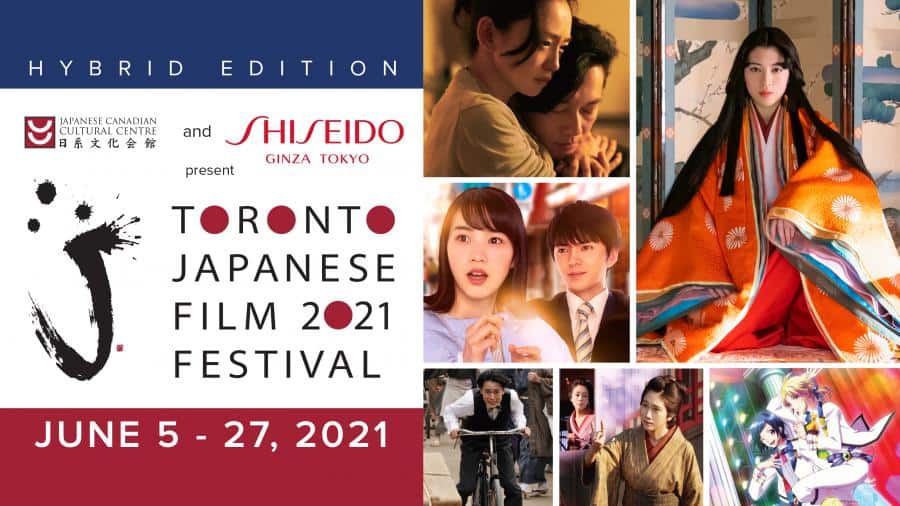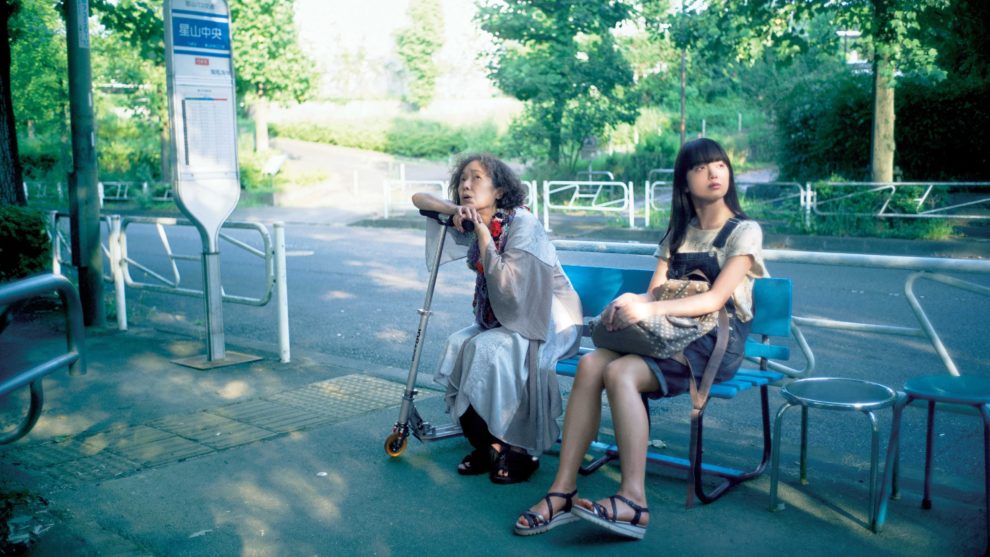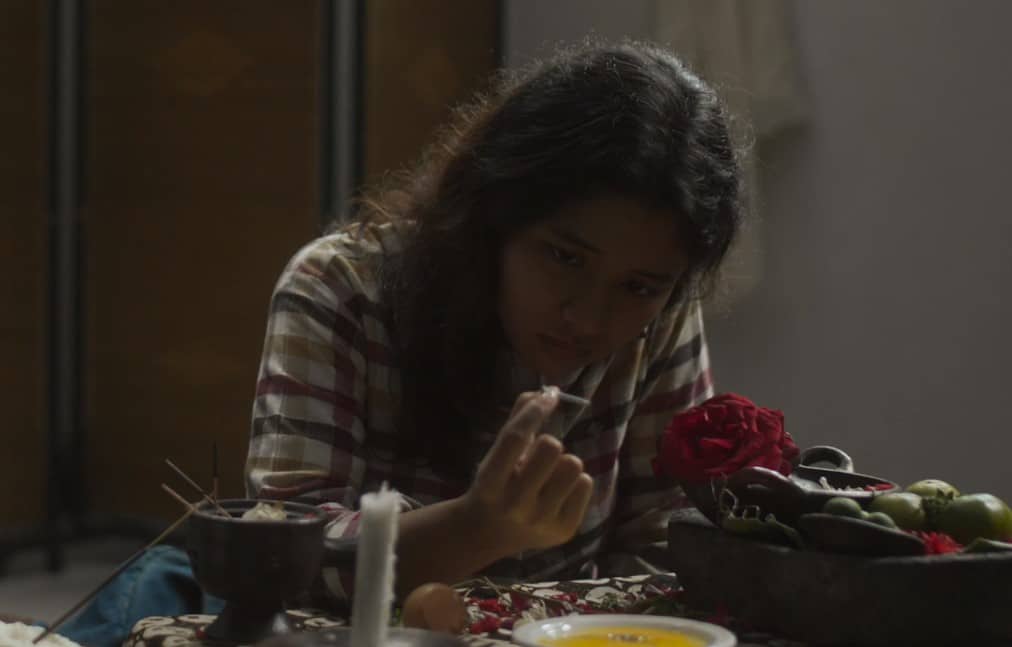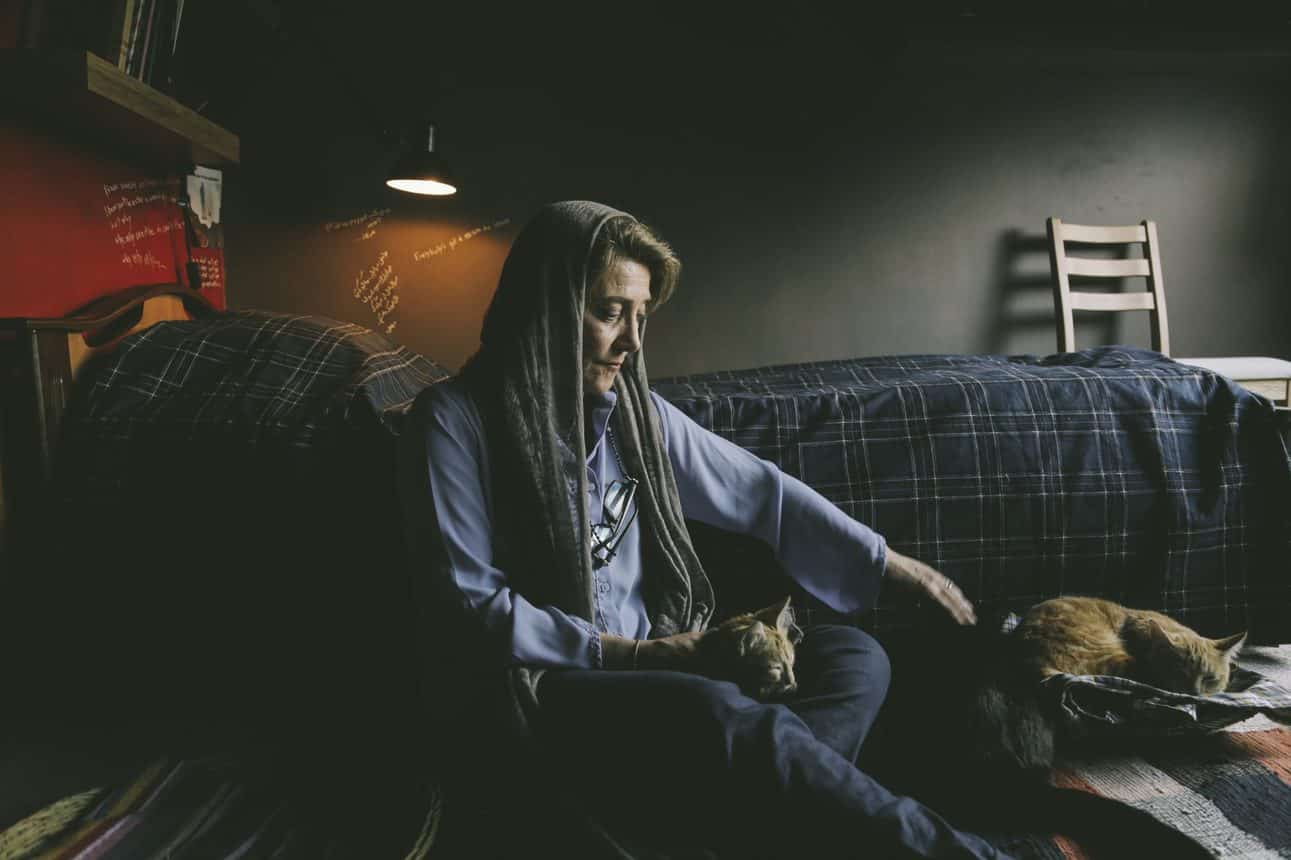Michihito Fujii has directed a film – sometimes two, and sometimes even three – a year almost every year since he first came on to the scene in 2012 with his debut “Where Is The Better Future Of A Fake Town”. His 2020 semi-fantasy coming of age film “The Brightest Roof In The Universe” (based on the novel “Uchu De Ichiban Akarui Yane” by Tomoso Nonaka) is attempting to make its own wave at this year's Toronto Japanese Film Festival. Clearly as prolific a director as they come, you'd think that the quantity of Fujii's output might hinder their quality. However, if this sweet tale about an endearingly awkward teen navigating love and past trauma with the help of a mysterious scooter-riding granny is any indication, then Fujii, and us, have nothing to worry about.
“The Brightest Roof In The Universe” is screening at Toronto Japanese Film Festival

The story follows Tsubame, a 14-year-old girl who regularly uses the rooftop of her calligraphy class to find solace from the turbulence in her life; for one, she is head over heels for Toru, her cool-as-a-cucumber banjo playing neighbour, whom she recently (and regretfully) sent a birthday love letter. She has a wholesome and close relationship with her father and stepmother, although news of the latter's pregnancy fills her with anxiety over the thought of losing her idyllic family life. During one escape to the rooftop, she's greeted by a scrappy and flamboyant granny – nicknamed Hoshi-baa – who dances across rooftops, and whom only Tsubame seems to be able to see. As their visits become more frequent, a friendship takes shape between the two women at opposite ends of life's spectrum.
In many ways, “The Brightest Roof In The Universe” reminds me of a Ghibli movie, a sentence which, rest assured, can pretty much only be delivered as a compliment. The bashful but plucky teenage heroine, the elements of surrealism, fantasy, and whimsy among the grounded themes of a young woman's anxiety; it's maybe a bit too on the nose to run parallel in quality to the subtle complexities of films like “Whisper Of The Heart” or “Only Yesterday”, but the main source of my enjoyment watching it derived from the same kind-hearted and sweet handling of real and relatable teenage themes. Much like a Ghibli film, director Fujii treats his young protagonist's hopes, fears, and problems with the same emotional weight that the character herself carries them, while maintaining a hopeful tone that never loses sight of the fact that these are very innocent and, in regards to first love, nostalgic problems that are natural in childhood.
Of course, we as the audience know that a high school crush isn't, in retrospect, really something to lose sleep over, or that a budding new member of the family doesn't immediately signal abandonment. We know better (now), but Tsubame doesn't, and Fujii successfully establishes all the necessary empathy we need to root for Tsubame. This balance of light tone and emotional weight makes “The Brightest Room In The Universe” an instantly comforting watch.
The credit can't all go to Fujii, however, as Kaya Kiyohara is quite impressive as Tsubame, carrying emotional scenes with honest conviction, and I'll admit, making me tear up and hug my pillow a little tighter at certain points in the movie. Kiyohara's performance is far from just lip quivers and tears, though, as she wonderfully conveys the awkwardness and naivety that comes with being a teen. While Kiyohara's youthfulness naturally shines through her character of the same age, Kaori Momoi is presented with the tricky task of acting younger than her age may suggest; Hoshi-baa is as crude, restless, and spritely as most teenagers, and it's obvious that Momoi is having a hell of a time with the role. That being said, she knows just the right moments to tone the slapstick down and up the wisdom or the sentiment, and really takes the role from a simple “spirit guide” archetype to a character with some three-dimensionality – even if the focal point of the movie is Kiyohara's Tsubame. As a duo, both actresses have great chemistry and their final scene with each other would swell the coldest heart.
“The Brightest Roof In The Universe” is an easy, comforting, and hopeful watch that's perfect for a night when your real-life problems feel a little too big for you.
















